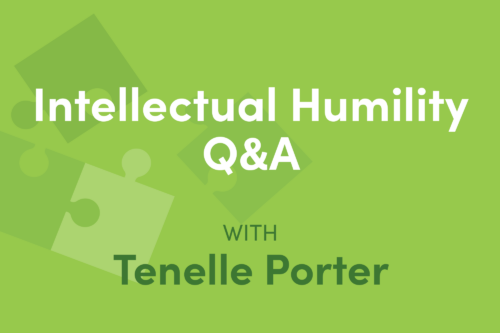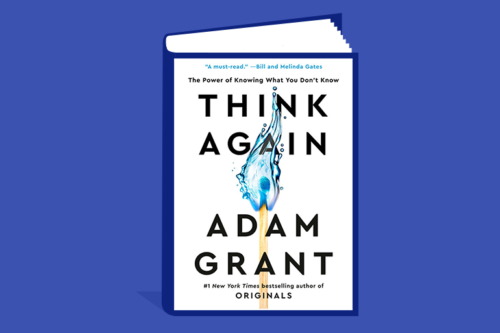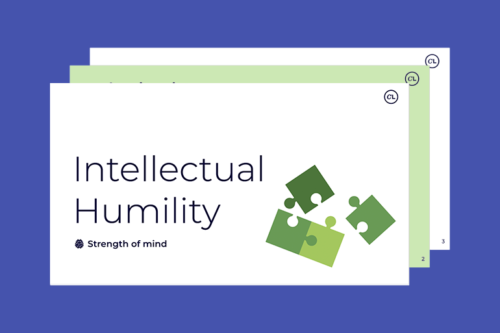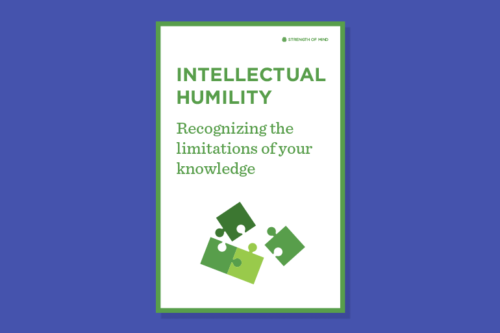Intellectual Humility
Recognizing the limitations of your knowledge
 Strength of mind
Strength of mind“When we set out upon the search for truth we should not assume that we already know for certain what truth is…”
—Mary McLeod Bethune
Why does intellectual humility matter?
When you approach life with intellectual humility, you open your mind to learning. You are able to learn from opposing views and have more constructive discussions, even when you disagree. No matter how old you are, with intellectual humility you become wiser. It helps you be less judgmental of others, learn more in school, and be a better leader.
Pulse Check
Think about yourself. How many of these things are true?
- I question my own opinions, positions, and viewpoints because they could be wrong.
- I reconsider my opinions when presented with new evidence.
- I recognize the value in opinions that are different from my own.
- I accept that my beliefs and attitudes may be wrong.
- In the face of conflicting evidence, I am open to changing my opinions.
- I like finding out new information that differs from what I already think is true.
How do I encourage intellectual humility in others?
Model it. Admit when you do not know or understand something: “That’s a good question. I don’t know the answer, but let’s look it up.” Appreciate others’ insights and let them know when they raise a point that you hadn’t considered: “I never thought of it that way, so it’s interesting to hear what you have to say.” Be willing to change your mind and let people know when you do: “I’m convinced by articles I’ve read about the problem, so my views have shifted.”
Celebrate it. Recognize when someone demonstrates intellectual humility: “I appreciate how open you’ve been to learning more about all sides of this issue.” Look for examples of intellectual humility in science, politics, and other areas; highlight these on social media.
Enable it. Value learning and point out that learning happens when you acknowledge what you don’t know. At dinner, make a habit of sharing a question you have or one new thing you learned. Keep media from diverse perspectives in the house. Establish a birthday ritual of noting how you have changed your mind over the past year.
About the Author
Tips

The Less You Know

Knowledge Transfer

Nothing to Hide

Confidently Humble

Style and Substance

See What’s Possible
Learn More
Character is more than just intellectual humility.
There are many other strengths of heart, mind, and will.
LEARN MORE ABOUT CHARACTER




